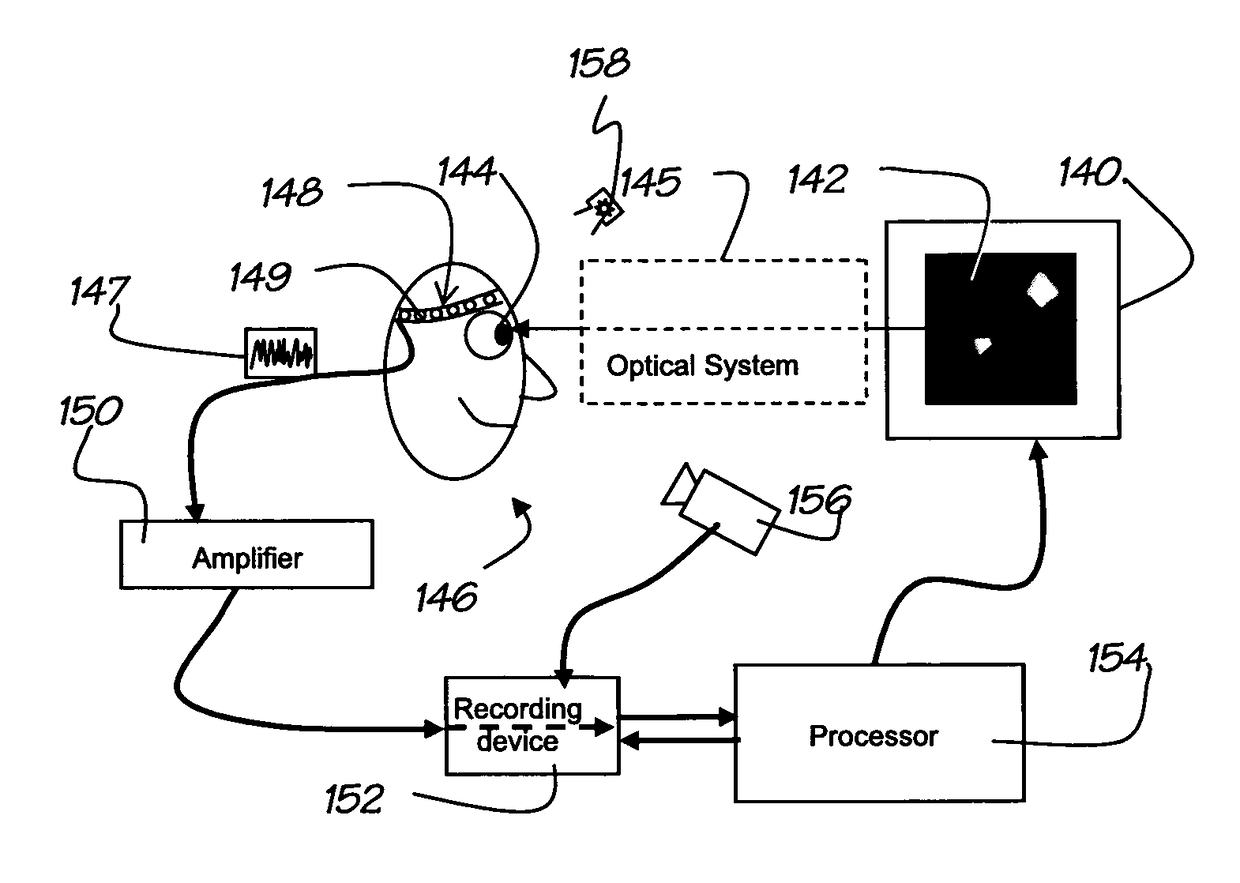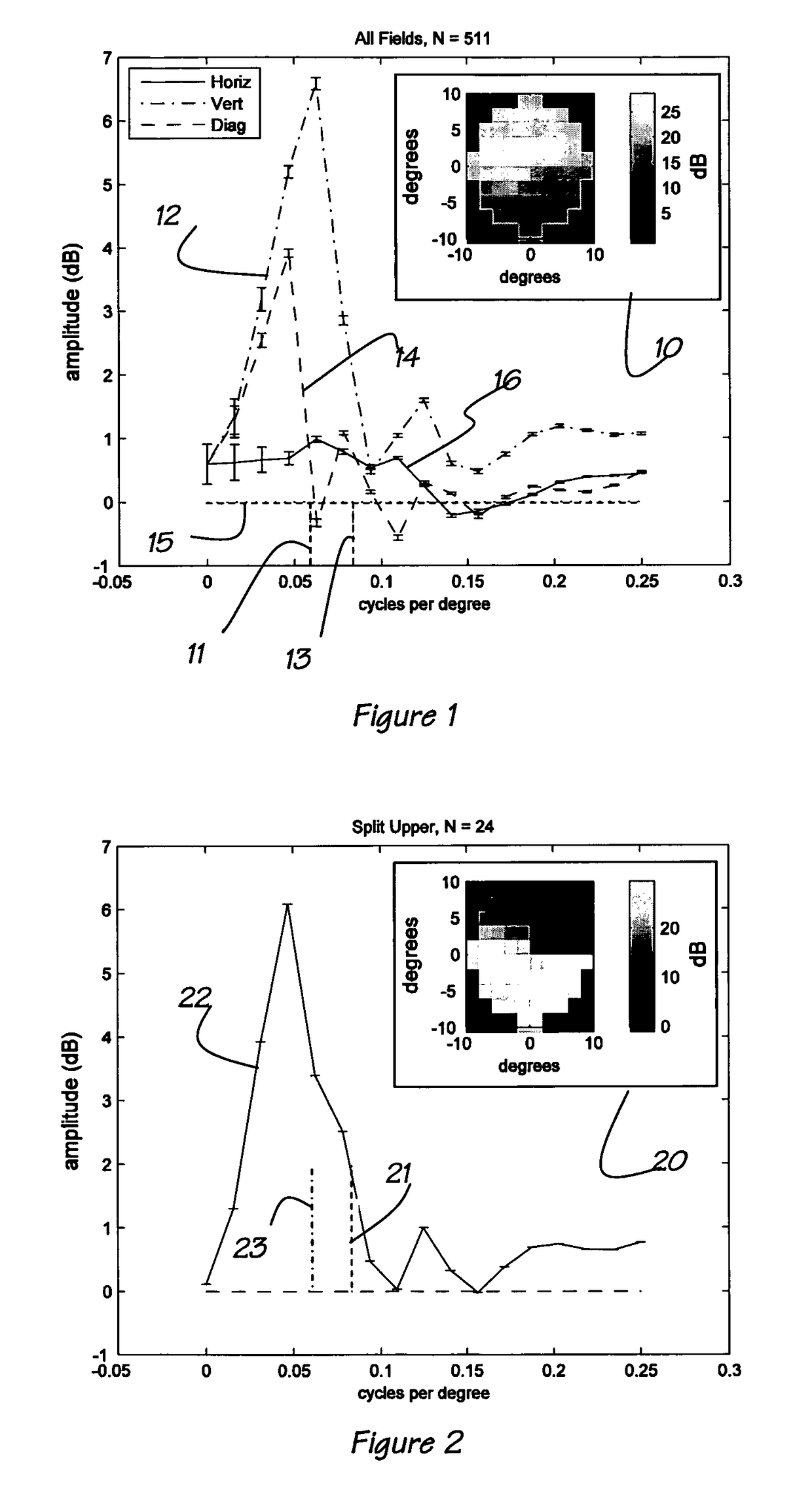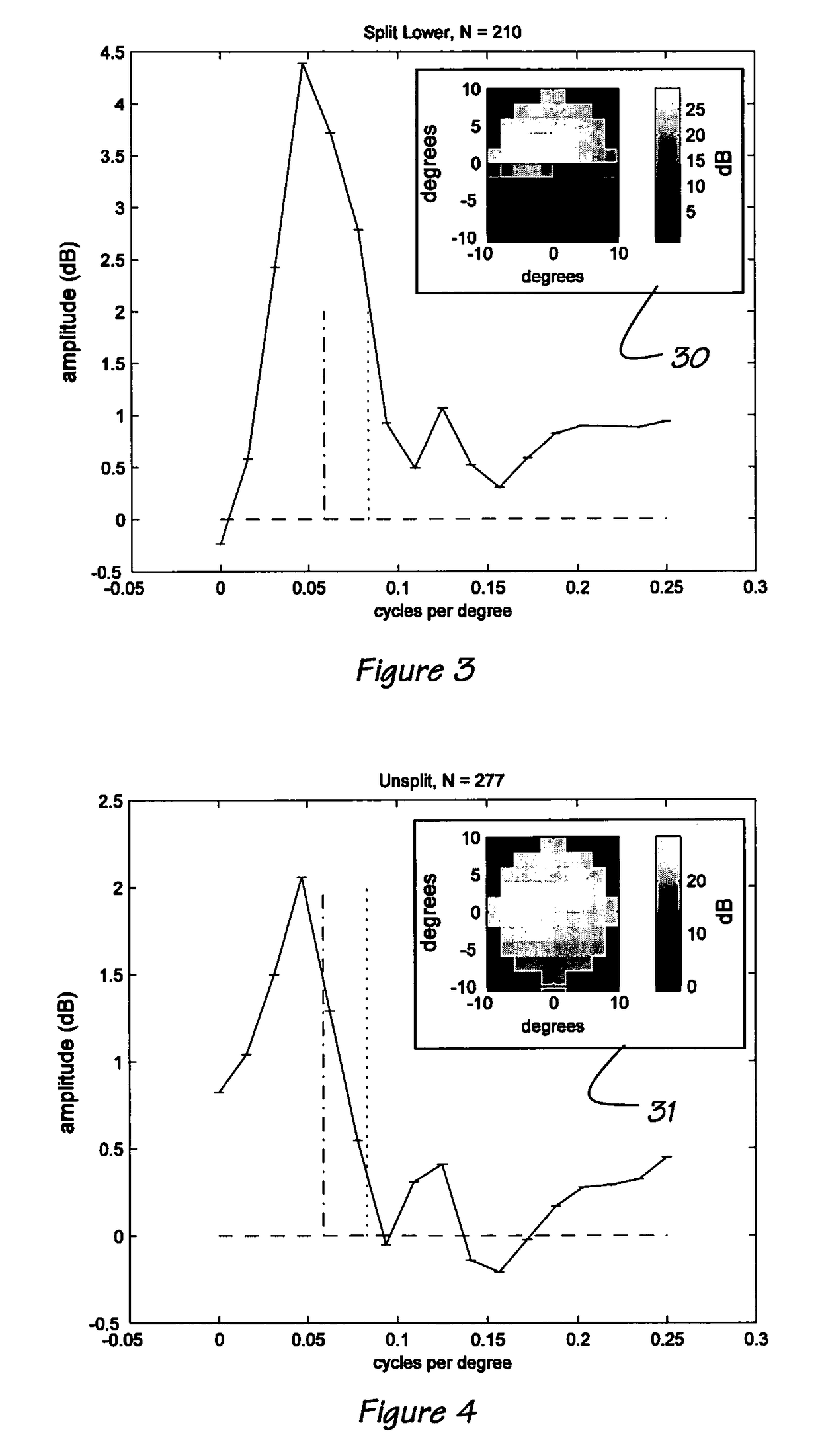Method and apparatus for sensory field assessment
a sensory field and sensory field technology, applied in the field of nervous system function assessment, can solve the problems of undersampling worse than simply missing valuable, coarse sampling grid, and filtering that does not assist in the removal of spatial aliasing
- Summary
- Abstract
- Description
- Claims
- Application Information
AI Technical Summary
Benefits of technology
Problems solved by technology
Method used
Image
Examples
example 1
[0161]The present example describes the visual field assessment of a subject according the above described methods using a multifocal visual field architecture wherein objective records of neural responses of both the subject's retinas were obtained by simultaneously recording the responses from each of the subject's two pupils in response to a dichoptic stimulation using blurred, smooth-edged and overlapping stimuli. Dichoptic stimulation is independent stimulation of the visual fields of the two eyes.
[0162]A separate O30-44 stimulus ensemble was presented to each eye using a stereoscopic arrangement of the apparatus as depicted in FIG. 20A that directs images of 2 separate liquid crystal (LCD) displays 140a and 140b, one to each of the subjects eyes 144a and 144b. The real-time diameter of each pupil was recorded and monitored using separate video cameras 156a and 156b under infrared illumination from IR LEDs 158 (a plurality of such LEDs shown). The processor 154 controlling the ...
example 2
[0182]The benefits of the overlap method are not restricted to glaucoma diagnosis. For example in a study of 29 normal subjects and 20 subjects with Age-related Macular Degeneration (AMD)
[0183]For the present example, the two types of stimuli presented to the subjects in the study were slightly different types of stimuli to those that were employed for the previous Example.
[0184]About half of the patient eyes had less severe dry AMD, and half more severe wet AMD, 4 eyes were clinically normal in appearance. The normal and patient groups were well matched for age and gender.
[0185]As in the examples above the stimuli either had 24 non-overlapping regions as per the stimuli described with reference to FIG. 19A above and described as T30-24 stimuli, or 44 regions that overlapped as shown in FIGS. 19C and 19D described as O30-44 stimuli above. The only difference between the stimuli used in the present example to that of Example 1 is that in both cases in the present example, both multif...
example 3
[0190]In a further example of the use of overlapping stimuli for visual field assessment, the yellow T30-44 290 cd / m2 described above were used in a study of 23 normal subjects and 23 patients with non-insulin depended diabetes melitis (NIDDM). Of the 23 patients with NIDDM, only one showed any obvious sign of diabetic retinopathy, and this subject displayed some microaneurisms. The normal and patient groups were well matched for age and gender.
[0191]Mean pupil size was not significantly different between the normal and NIDDM patient groups and mean pupils size did not carry any significant diagnostic power in the present study. This suggested that the pupils of the patients were not affected by diabetic neuropathy.
[0192]The diagnostic performance based on the N-worst regions (expressed as areas under ROC plots) for the 16 eyes from the 8 patients who had experienced NIDDIM for at least 10 years was 0.89%±0.06% (mean±SE) (based on difference from normal performance, asymmetries are ...
PUM
 Login to View More
Login to View More Abstract
Description
Claims
Application Information
 Login to View More
Login to View More - R&D
- Intellectual Property
- Life Sciences
- Materials
- Tech Scout
- Unparalleled Data Quality
- Higher Quality Content
- 60% Fewer Hallucinations
Browse by: Latest US Patents, China's latest patents, Technical Efficacy Thesaurus, Application Domain, Technology Topic, Popular Technical Reports.
© 2025 PatSnap. All rights reserved.Legal|Privacy policy|Modern Slavery Act Transparency Statement|Sitemap|About US| Contact US: help@patsnap.com



